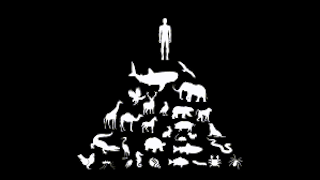Imagine if the fate of our world were in someone else’s hands
We humans are unique among all the species that have ever existed on this Earth, in that we’ve attained the power to not only manipulate features of our environment, but to meaningfully impact the entire biosphere. That obvious fact long supported the belief that we can do what we want – the world is our domain, and we are its masters. Fortunately, that view has been changing over the last few decades, in tandem with our realization that our own best interests aren’t necessarily served when we deal with the rest of the world in this way.
The question now is whether we’ll be able to adapt quickly enough to attain ‘circular economies’ and net-zero emissions before we push the planet so far beyond its boundaries that we ourselves will become part of the fossil record.
Today, we increasingly see our kind not as having dominion over the earth, and all the creatures on it, but as an inextricable part of the web of life. We’ve come face to face with the realization that we need to be very careful in how we define our relationships with other species, and with the natural world itself. Whether the issue turns on conservation, or on the humane treatment of other species, our power does not imply that it’s in our best interest to exercise dominion over the planet. That is becoming increasingly obvious. And that would be so even if we were to stick to the traditional perspective that WE are the only ones capable of apprehending what matters in the world. Or the only ones capable of assigning value to things, and of feeling love for others of our kind. Of assessing what’s meaningful in our lives.
But what if that were not always the case? And, in fact, I don’t believe that it is. Our growing base of knowledge in the fields of cetacean behavior, intelligence and brain physiology suggest otherwise. What we already know strongly recommends that we open ourselves up to the possibility that there are other species for whom these things matter every bit as much as they do to us. And that remarkable fact should profoundly impact our view of our responsibilities as the technologically dominant species.
I’m not talking about sharing the planet with another species of humanoids who basically look and think like us, but don’t hold the power we do. Since the demise of our Neanderthal cousins that hasn’t been the case. But if they were still around, it’s easy to see how it would be immoral for us to make decisions that would impact their world without their consent. But do those other species necessarily have to look like us in order to warrant that kind of consideration?
Cetaceans, certainly dolphins but probably most or all cetaceans, do appear to possess intellectual abilities that by any definition should be in the same league as our own. Not in terms of being able to manipulate features of their environment, no. But they are smart enough to assign value to their lives and the lives of others. They love, certainly. They grieve intensely for the loss of loved ones. It’s clear that their lives are meaningful to them. They are self-aware. Sentient. Sapient. But unfortunately for them, they are almost completely dependent on us choosing to avoid taking actions which can harm them.
That would include actions which will determine whether the oceans continue to warm and acidify. Whether coral reefs continue to bleach and die. Whether the biodiversity of the seas disappears. Whether plastics and fishing gear continue to accumulate, and whether fish disappear under the pressure of our trawlers and gill nets. None of this is up to them. By chance and circumstance, someone else happens to hold the power to determine these things. If that doesn’t seem fair somehow, it’s because it isn’t.
So I’d like you to consider this hypothetical question. What if the roles were reversed, and WE were the ones who were dependent on that other species? They would get to make all the important decisions, not us. Try to imagine how that would feel. From our point of view, we would not believe it’s in any way fair that someone else gets to call the shots that will determine our own wellbeing. We would most certainly resent their continuing to do so.
I can guarantee you that we would believe that that other species owes us a duty-of-care, and that they should extend their moral frontier to include us.
We are a part of the web of life, not standing on top of it. The fact that we alone are able to dominate all the rest of it does not mean we are without responsibilities. The ability to dominate does not equate to a moral right to dominion. Those two are entirely separate concepts.
Just as we have a duty of care to our fellow human beings, it is reasonable to extend it to other species – especially to those whose capacity to love and live meaningful lives is comparable to our own. Or to put it another way, we have a responsibility to not act in a manner that will negatively impact others who have no ability to influence or control those actions.
We would be acting immorally to ignore that.
For The Orca’s Voice,
Dani, Canadian Cetacean Alliance



Leave a Reply